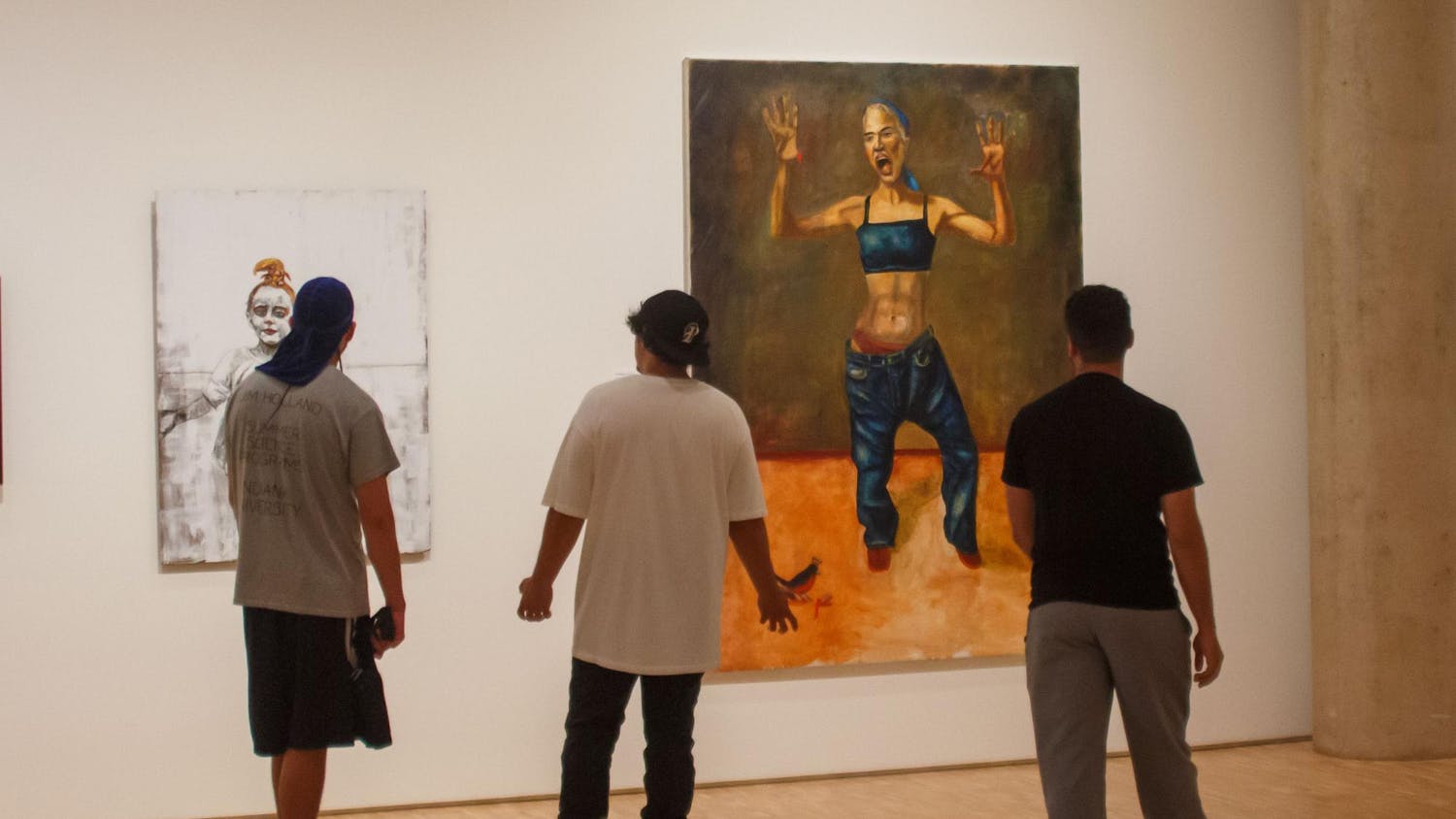Celebrated conductor David Effron will conduct the Johannes Brahms Concerto for Piano in D Minor and the Witold Lutoslawski Concerto for Orchestra at 8 p.m. today at the Musical Arts Center.
The Brahms Concerto will feature the internationally recognized pianist Eunjin Bang as soloist as well as the Jacobs School Philharmonic Orchestra.
Born in South Korea, Bang began playing piano at 4 years old and quickly received national acclaim for her achievements.
Since moving to the United States, Bang has graduated from the Oberlin College and Conservatory with a Young Arts Diploma in 2008 and a Bachelor’s of Music degree in 2012. Recently, she has been pursuing her Master’s of Music degree at the Jacobs School.
The Brahms Piano Concerto in D Minor is a frequently performed piece and is considered by some to be a classic.
Many famous recordings of the piece have been made with pianists as varied as Arthur Rubenstein, whom the New York Times praised as one of the greatest pianists of the 20th century, to the eccentric Glenn Gould, who performed the piece with Leonard Bernstein at a controversial event in 1962.
Before the concert began, Bernstein made a famous disclaimer to his audience regarding Gould’s interpretation of the piece.
“You are about to hear a rather, shall we say, unorthodox performance,” he announced before the show. “A performance distinctly different from any I’ve ever heard, or even dreamt of for that matter, in its remarkably broad tempi and its frequent departures from Brahms’ dynamic indications. I cannot say that I am in total agreement with Mr. Gould’s conception.”
Sam Emanuel, Maestro David Effron’s assistant conductor, said Bernstein and Gould’s performance represents the “give and take” nature of the concerto.
“It’s a real collaboration,” he said. “I don’t think either person can really be the boss. The performance needs to be a unified whole. I’m a big fan, personally, of everything that Gould does.”
The Brahms D Minor Concerto runs close to 50 minutes and features a balance between orchestra sections and piano solos.
It is not considered the standard concerto piece.
“The defining feature is that it’s symphonic in scope,” said Emanuel. “A lot of contemporary concerti are more soloistic—the orchestra is accompanying the pianist. This is much more the piano and the orchestra being equals.”
Equality among and within the orchestra is a feature that will be represented in the composition by Witold Lutoslawski.
One of the major composers of the 20th century, Lutoslawski wrote his heavily stylized Concerto for Orchestra in 1954.
Emanuel views the concerto as representing the harsh postwar environment of the composer’s native Poland.
“It’s a very dramatic piece — quite violent,” he said. “There are numerous passages that are marked to be played aggressively. It’s bleak.”
Despite early success with the Concerto, Lutoslawski attempted to distance himself from the composition in later years, turning his attention to more “aleatoric” or improvisatory pieces — a hallmark of later 20th-century composers like John Cage.
Featuring a score both grand and bleak, Emanuel said he hopes for a strong reaction from listeners.
“The Lutoslawski has an overpowering feeling,” he said. “I think the audiences will just be struck by the drama of both pieces.”
Renowned pianist, conductor to perform with philharmonic
Get stories like this in your inbox
Subscribe


